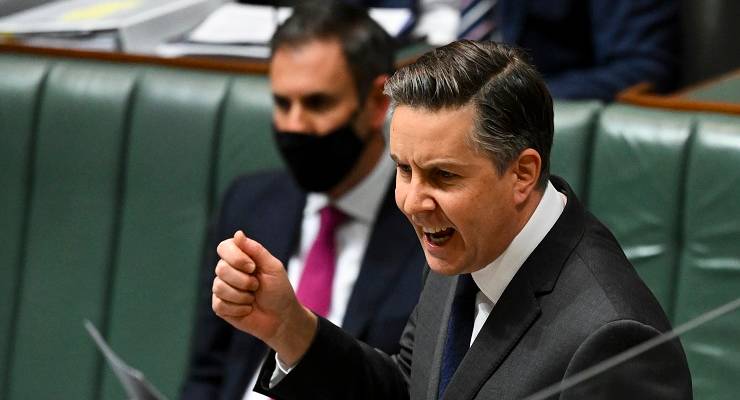
Contrary to our national mythos, Australia does not have universal healthcare. Sure, if you have a life-threatening emergency, critical heart disease or cancer then you can reasonably expect timely, quality treatment at your local public hospital. Excepting those situations, however, our health system is riddled with inequality and compromise where the underpinning principle is not universality, but that you get what you pay for.
Gaps
Medicare rebates to patients no longer cover the cost of health services (parts and labour) in 2022. As a result, more GP clinics are introducing gap payments — a paradigm that will disproportionately limit access to healthcare for low income Australians.
Socioeconomic disadvantage is already a risk factor for poorer health outcomes. If increasing gap payments mean Australians are put in the position of forgoing luxury purchases like check-ups, their risk of developing chronic disease is amplified. Left unaddressed, this leads to more chronic disease at greater cost to the future health budget, a fiscal example of prevention as better than cure.
Going beyond medical consultations, it is also time to rethink access to physiotherapy, psychology and allied health. The highly restrictive Enhanced Primary Care (EPC) scheme confers a literal handful of rebates for allied health, otherwise Medicare does not fund visits to the physio or dentist.
Access to psychology services is better resourced; however, the key step of acquiring a mental health plan to do so is a pointless charade — it adds no value to the patient and exists solely to gate-keep the mental health budget. Everything is terrible and you shouldn’t need a GP blessing to confirm that and get counselling about it.
Fair’s fare
We can look to other countries to compare and tweak our current model. The United Kingdom’s NHS is more equitable than Medicare but it is bloated and inflexible. A USA-style corporate hellscape is no more palatable, but that is exactly what our current health system more closely resembles. Fine if you can pay, otherwise you’ll take what you get and say thank you.
The US Affordable Healthcare Act expanded healthcare access on a means-tested basis. It is a useful example on how Australia could provide fairer healthcare but first it requires us to ditch the fantasy that Medicare is the gold standard of equitable healthcare. It is a point of Australian pride that Medicare is an egalitarian system funded by a fixed levy but, nearly 40 years on from its introduction, Australia is a society of absurd wealth inequality where egalitarian is not a synonym for fair.
If some Australians own 50 iceberg lettuces and others have none, you don’t fix that problem by giving everyone a taxpayer-funded lettuce. Even if fairness isn’t the guiding principle, cold utilitarian economics tells us to make future health budget savings by providing more primary and preventative care dollars to those with the least capital.
The reformation
Medicare’s current fee-for-service (FFS) schedule is constantly under review but remains open to mercenary rorting. One alternative to FFS is paying health practitioners a base salary, as they are in public hospitals. The fizzer idea of Health Care Homes has demonstrated that any move to introduce fixed payments alongside the FFS honeypot is fraught and such an act would necessitate a complete knock-down-rebuild of Medicare.
Assuming Health Minister Mark Butler’s appetite for reform extends only to light renovation, rebates could be expanded to include dental, mental and allied health and selectively increased to reduce the gap payments for low-income Australians. Similar to the NDIS this would distribute health funding according to need, with need being determined by income and assets.
The task of Medicare reform and reshaping the Medicare levy is well above my pay grade but the current situation of increasing gap payments for all is neither healthy nor fair. Despite the parochial bad aftertaste of leaning into a tiered model of healthcare, it may be the fairest choice. since under our current system everyone gets the same federal health assistance whether they live in a harbourside mansion or no fixed address.
Have you felt the pinch of gap payments? Does our healthcare system need to be overhauled? Let us know your thoughts by writing to letters@crikey.com.au. Please include your full name to be considered for publication. We reserve the right to edit for length and clarity.








“The United Kingdom’s NHS is more equitable than Medicare but it is bloated and inflexible.”
A fair amount of the article is accurate, but this is nonsense. The UK NHS is not bloated, it has been systematically starved of funding for well over a decade and is near collapse. Before that, under the Blair governments it got increased funding but this was done through Private Finance Initiative scemes that were comprehensively rorted so that huge profits went into private hands while the health authorities were saddled with vast unmanageable debts for decades to come, leaving them unable to fund adequate patient care. The outcome for patients has been dire. And while the NHS, unlike Medicare, includes dental care, this is just a sick joke for most of the UK. Most dentists refuse to take on NHS patients because it is so badly managed and funded. In consequence many who cannot afford private dentistry get no dental care and some resort to carrying out their own DIY dental surgery. The Tories have consistently appointed advocates for privatisation to senior NHS poisitions and Tory Health Ministers are surrounded by advisors from US corporations looking for profitable contracts from the NHS. The general idea appears to be drive the NHS down to the point where the UK public becomes so disillusioned and desperate it finally loses its attachment to the NHS and agrees that anything would be better than the mess it has become.
Back in that halcyon daze of the 60/70s Australian dentists were a bulwark for the NHS because it gave them a well paid working holiday to gain vast amount of experience dealing with some truly appalling dental problems that would stand them in good stead when they returned to coin in here in private practice.
An excellent noir look at the subject is Greig ‘HG Nelson’ Pickhaver’s 1993 Australian comedy film This Won’t Hurt a Bit, directed by Chris Kennedy.
Absolutely spot on. The tories have never supported the NHS, the long term aim is to privatise to US healthcare companies. The tories hate the NHS because it was introduced by a properly socialist Labour politician by the name of Aneurin Bevan, a satue of whom stands near the castle in Cardiff. The concept of NHs predates the work of that effete Oxford educated spaffologist Beveridge by decades. The coal miners of south Wales contributed weekly from their wages to support medical care them and their families. The Caerphilly Miners Hospital was set up in the depression years on this basis, other hospitals predated this. You will not find a Cory Brothers hospital in South Wales or heaven forbid a Marquis of Bute hospital anywhere in UK. The Butes were too busy litigating and suborning parliament to thwart competitors and building castles and collecting libraries on the backs of the miners.
The private health insurance rebate system is a massive furphy within our system that must inevitably affect the quality of the public system. The rebate simply pays the private health insurance industry for people to just have the insurance. Doesn’t matter if they have cover for yoga sessions or wheatgrass smoothies or horse dung facials. They don’t even need to use it at all to get the rebate. That industry & the anti Medicare brigades always use the scare tactic that removing the rebate would cause a stampede into an over stretched public system is complete hypocrisy. The fact is that ALL our public services are overstretched, not just health, because we the electorate keep voting in government after government that insist on running our services to an ever smaller budget & not to an acceptable STANDARD. They call it an ‘efficiency dividend’ but it is & will always be the neo con/neo liberal philosophy of ‘ starving the beast’. The ‘beast’ being public services that should be given to for profit private enterprises. End the private insurance rebate scam & put that funding directly into the Medicare system!
From memory put in by Howard to speed up the privatisation of our health system. One of the most egregious moves . . .
My memory says private health was on the verge of collapse as people left in droves, especially healthy ones. He propped it up with a massive subsidy that would keep growing and put in tax penalties to force people to take it up. Made it more inefficient, more profitable and embedded a vested interest lobby that would keep fighting for it. A step towards US system Howard rat cunning.
In general any insurance system is more efficient the wider you spread the risk, thus universal health insurance is a no brainer, as is no fault third party car insurance as we have it. Best policy would be withdraw all private health subsidies, let private health fall over, buy up the infrastructure cheap and put all health professionals on salaries. Rat cunning in reverse.
As with private school subsidies, so with private medicine – with the added wrinkle that when privte hospitals screw up or encounter real problems they rapidly shoehorn their privileged patients into the public system.
Come to think of it, the private schools do the same thing with students who are ‘problematic’ – shove them out onto the public purse – else it might bring down the tone of their establishments
Abolish all such freebies, let both stand on their own feet instead of the taxpayers’ toes. Then we’d see how the ‘free enterprise’ boosters manage.
Put the ever escalating, due to being indexed, subsidy costs into public health & schools and see where the majority of private patients & students end up.
We can look to other countries to compare and tweak our current model.
Yes, but let’s not only compare our system to the UK and the US. There are plenty of other systems out there.
Yes indeed. Partly a product of the monolingualism of our journalists I would think. However, if German, French or Spanish are too challenging, Canada has a better model than us and the Dutch seem to put most things in English. The US system is clearly the worst healthcare system in terms of equity and costs. It serves as a measure of what not to do.
The US is, yet again, unique in its own special awful way in spending more per capita on health care than any other nation and having by far the worst health outcome – eg peri/neo natal and maternal death rates higher than many developing countries, even Cuba, blockaded for the last 60yrs.
That takes real effort.
Howard ramped up the inequities. Like favouring private schools he and the Liberals have always hated Medicare. Also the closed shop specialists regime have gouged us for years.
I think the first thing to do is end the private health rebate.
Change the rules on prescriptions so that they can be renewed at the pharmacy at no cost, instead of taking a GP visit, for chronic disease sufferers.
And introduce a cap on gap payments.
Exactly. I see a specialist once a year for a lifelong condition. But they can only give me a 6 month prescription, necessitating a pointless GP consultation as well.